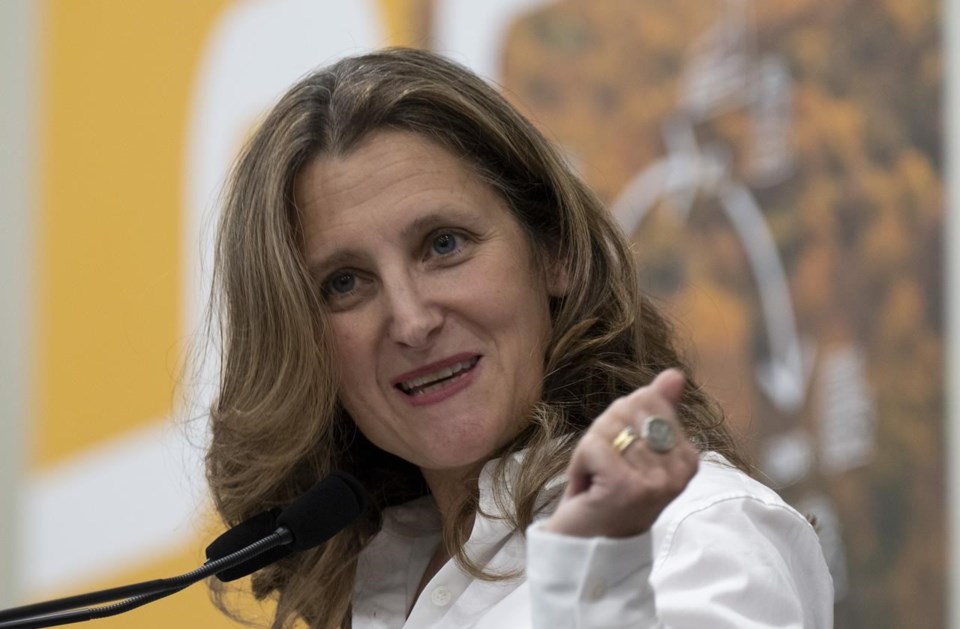OTTAWA ŌĆö Deputy Prime Minister Chrystia Freeland says she did not mean to offend anyone after saying last week that Africans must be "prepared to die for their democracy," and hinted that Canada might boost aid for the continent.
"If anyone did find my comments to be insensitive, then I'm very sorry," Freeland said Monday.
ŌĆ£If ŌĆ” a white western person has offended someone, the first answer is to say, ŌĆśI really didn't mean to offend you.ŌĆÖŌĆØ┬Ā
In a speech last week in Washington, Freeland urged democracies to grow closer through trade and energy ties, in the face of a perilous new world order where autocracies are trying to usurp democracy.
In a question session afterwards, a man who said he works for African Development Bank asked Freeland about western countries hinting at a drop in aid for the continent, in order to fund UkraineŌĆÖs needs.
The unnamed man, whom The Canadian Press could not identify,asked Freeland to respond to concerns that this will only increase RussiaŌĆÖs sway in that continent.
Freeland responded that western countries do need to step up and ŌĆ£prove we're real partners.ŌĆØ
But she also said it is up to African countries to choose their own paths, and rejected the idea that they can simply fall into RussiaŌĆÖs orbit by accident.
ŌĆ£A democracy can only be defended by people themselves if they're actually prepared to die for their democracy,ŌĆØ she said last week.
The comment led to pushback on social media, and raised eyebrows among Africa experts.
University of Ottawa professor Rita Abrahamsen said Freeland was correct in saying that itŌĆÖs up to Africans to determine their destiny, but cautioned that the conflict in Ukraine has become a sensitive issue.
ŌĆ£This a strong sense among many African countries that they are being bullied or patronized, or that one is holding aid hostage to support in the UN (forums), for the war in Ukraine,ŌĆØ she said.
ŌĆ£Canada has to be very, very careful here.ŌĆØ
Abrahamsen, the director of the Centre for International Policy Studies, says RussiaŌĆÖs invasion of Ukraine has put economic pressure on a continent dealing with climate chaos.
ŌĆ£Emotions are running high around this on the African continent, and it means that words have to be judged very carefully,ŌĆØ she said.
"We're looking at a continent where a large part of it ŌĆ” (is) close to famine conditions, acute starvation. We're looking at immense flooding in large parts of West Africa; we're looking at a return of military coups."
Freeland said Monday that the western world needs to recognize that current problems stem from colonization.
ŌĆ£These are challenges that have been imposed from the outside. And I think that means we have a high level of responsibility.ŌĆØ
She hinted that upcoming budgets could include more humanitarian aid for Africa, and noted CanadaŌĆÖs push to reform global financial organizations to better fit the needs of poorer nations.
ŌĆ£We need today, if anything, to step up our engagement with the global south,ŌĆØ she said, referring to developing nations.
ŌĆ£What is important is to take the lead from our African partners, and to listen to them about what it is specifically that is on their agenda, and what specifically they need.ŌĆØ
This report by The Canadian Press was first published Oct. 17, 2022.
Dylan Robertson, The Canadian Press




